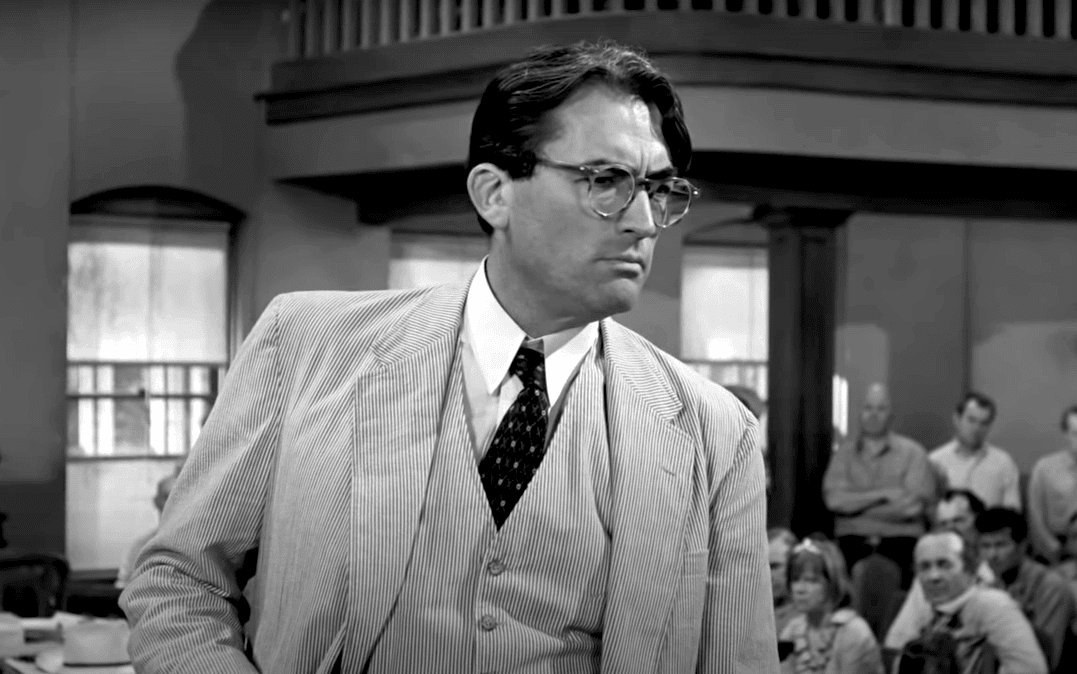To Kill a Mockingbird is a classic novel by Harper Lee that focuses on the racial inequalities and discrimination in a small town in Alabama during the 1930s. At the heart of the story is Atticus Finch, a lawyer and a father who opposes racial injustice. Atticus represents a black man named Tom Robinson who has been falsely accused of raping a white woman. Racism is the central theme of the novel as it affects the community, is institutionalized in the justice system, and shapes the attitudes and beliefs of the townspeople. Atticus’s fight for justice is characterized by his unwavering morality, empathy, and commitment to human dignity. Despite facing hostility and criticism from the community, he relentlessly defends Tom Robinson. Atticus Finch’s legacy inspires generations to fight against discrimination and prejudice, promoting greater empathy and compassion in the world.
Atticus Finch vs. Racism: A Lawyer’s Fight for Justice in To Kill a Mockingbird
Introduction
To Kill a Mockingbird, written by Harper Lee, is a classic novel that tells the story of a small town in Alabama, grappling with racial inequalities and discrimination in the 1930s. At the center of the story is Atticus Finch, a lawyer and a father who stands firmly against racial injustice.
Atticus Finch: The Character
Atticus Finch is an iconic literary figure who epitomizes moral courage, integrity, and compassion. He is a respected lawyer in his community who represents Tom Robinson, a black man who is falsely accused of raping a white woman. Atticus is also a single father to two children, Jem and Scout, whom he raises with values of empathy and fairness.
Racism: The Central Theme
Racism is the central theme of To Kill a Mockingbird, and it’s what drives Atticus to fight for justice. In the novel, we see how racism affects the community of Maycomb and how it’s institutionalized in the justice system. Atticus confronts the prejudice and bias that Tom Robinson faces in court and challenges the deeply ingrained attitudes and beliefs of the townspeople.
Atticus’s Fight for Justice
Atticus’s fight for justice is characterized by his unwavering morality and his commitment to treating all people with dignity and respect. Even when he faces hostility and criticism from his community, he remains steadfast in his defense of Tom Robinson. He presents a compelling case in the courtroom and exposes the flaws in the prosecution’s arguments. However, despite his best efforts, Tom is ultimately convicted, and Atticus must deal with the ramifications of the verdict.
Racism in Maycomb
Maycomb is a town where racism is prevalent, and it’s woven into the fabric of everyday life. Black people are treated as second-class citizens, and their rights are often ignored. Atticus’s fight for justice exposes the bigotry and narrow-mindedness of the white townspeople who are unwilling to see beyond their own prejudices. He challenges them to consider the humanity of others, to see the world from a different perspective, and to act with empathy and kindness.
The Legacy of Atticus Finch
Atticus Finch’s legacy is one of moral courage, empathy, and integrity. He stands as a symbol of hope and justice, inspiring generations of readers to fight against discrimination and prejudice. His example reminds us that even when we’re facing overwhelming odds, we can still make a difference by standing up for what’s right. His character continues to inspire people to this day, and his fight for justice resonates with readers around the world.
Conclusion
In To Kill a Mockingbird, Harper Lee creates a vivid portrayal of a community grappling with racism and injustice. At the center of it all is Atticus Finch, a lawyer and a father who stands up against prejudice and bigotry. As we read about his fight for justice, we’re reminded of the importance of moral courage, empathy, and integrity. We see how even in the face of overwhelming odds, we can make a difference by standing up for what’s right. Atticus Finch’s legacy is one that inspires us all to fight against discrimination and to promote greater understanding and compassion in the world.
